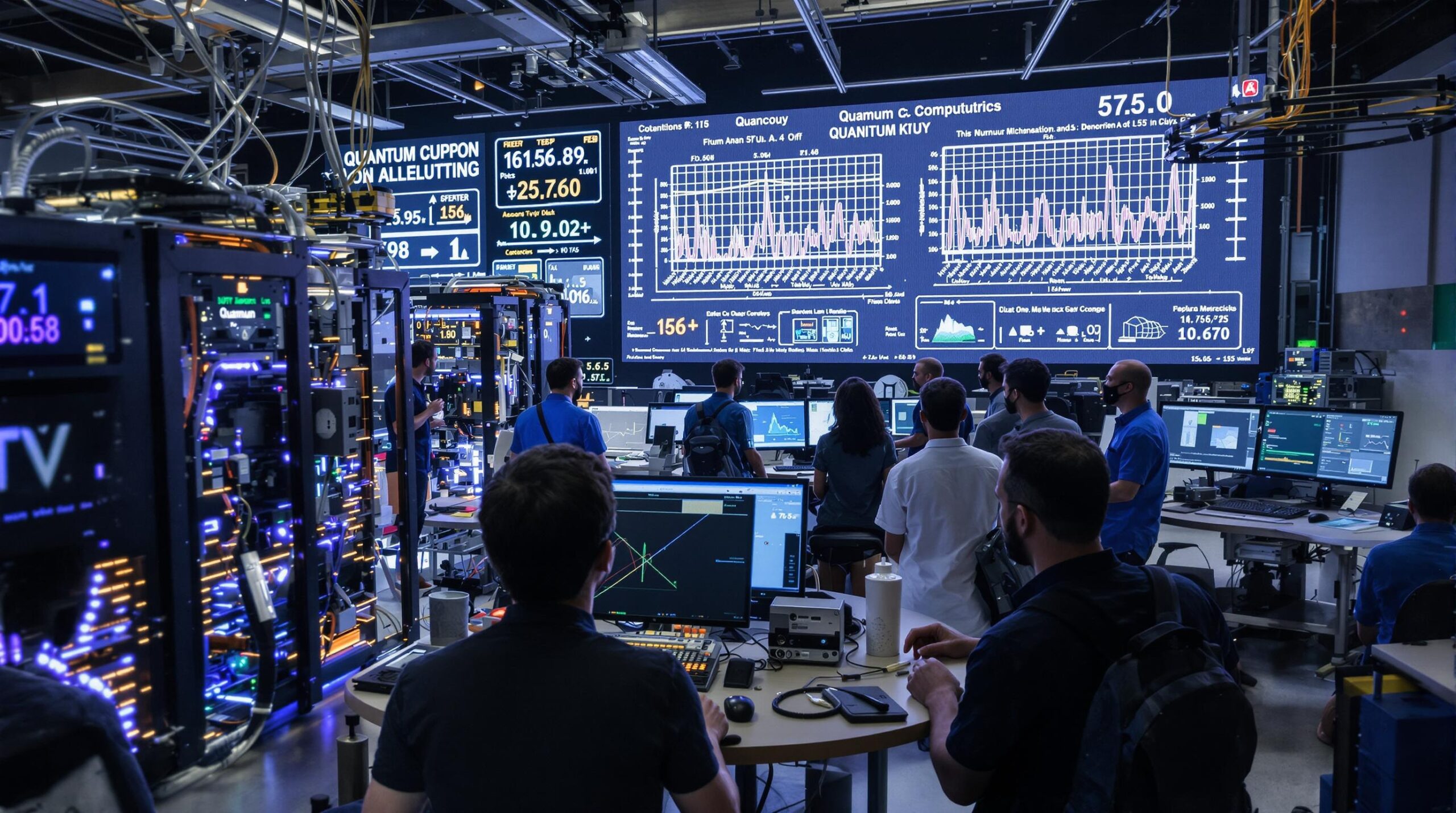Quantum computing has reached a pivotal moment with a recent breakthrough that could reshape how the world tackles complex problems. Scientists have long explored quantum mechanics for advances far beyond classical computers’ capability. Now, innovative research and hardware advancements promise to make quantum problem-solving both faster and more accessible.
What Is Quantum Computing?
Quantum computing harnesses the unique properties of quantum bits, or qubits, to process information. Unlike traditional bits, qubits exist in multiple states at once due to superposition. This enables quantum computers to handle vast numbers of calculations simultaneously. Quantum entanglement, another property, allows qubits to remain interconnected even at a distance. These features grant quantum computers an edge over classical computers in solving certain tasks.
The Latest Breakthrough
This new quantum computing breakthrough centers on dramatically increasing the speed and accuracy of qubit operations. Researchers have developed new error-correction methods and more stable qubit architectures. This allows quantum processors to run algorithms with fewer disruptions. This innovation not only accelerates computations but also increases reliability for real-world problem-solving.
Key contributors to this achievement include leading technology firms and research institutions around the globe. Their collaboration has pushed the boundaries of hardware and software integration in quantum systems. The result is a prototype quantum computer that outperforms previous proof-of-concept machines.
Why Speed Matters in Problem Solving
Many of today’s most challenging problems require extensive computation. Fields like cryptography, chemistry, and materials science depend on the rapid processing of enormous data sets. Classical computers can take years or even decades to crunch these numbers. Quantum computers can drastically cut this time to hours—or even minutes.
Faster computation enables scientists to run more simulations and explore greater possibilities. This empowers breakthroughs in drug discovery, climate modeling, and optimizing logistics. Once out of reach, these applications are becoming more feasible as quantum technology matures.
Error Correction: The Key to Quantum Progress
One of the biggest barriers to practical quantum computing has been error rates. Qubits are extremely sensitive to environmental disturbances. Even tiny temperature or electromagnetic shifts can cause information loss. Perfecting error correction is critical for reliable results.
The breakthrough introduces a new error-correction scheme that protects information more effectively. It employs redundancy and quantum algorithms designed to identify and fix errors as they arise. By reducing noise, this approach allows quantum computers to operate longer and tackle more complex tasks.
Impact on Cryptography and Security
Quantum computers threaten to upend many cryptographic systems that keep online data secure. Today’s encryption depends on the difficulty of factoring large numbers, a problem quantum computers could solve rapidly. The latest advances bring us closer to post-quantum cryptography, which uses new mathematical frameworks immune to quantum attacks.
As organizations anticipate quantum threats, the urgency to upgrade global security infrastructure is increasing. This transition will require coordinated efforts between academia, technology firms, and governments.
Advances in Quantum Hardware
Hardware innovation is essential for quantum computing’s continued progress. The new prototype system uses superconducting qubits cooled near absolute zero. This environment reduces errors and preserves coherence, improving the computer’s performance. Engineers have also developed scalable chips that host more qubits without significant increases in noise or instability.
Significant advances in quantum interconnects now allow multiple quantum chips to work together. These developments are paving the way for more powerful quantum processors. The race is on to build machines with thousands or even millions of interconnected qubits.
Potential Applications Across Industries
The implications of quantum computing reach far beyond academic labs. Pharmaceutical companies foresee quantum simulations that speed up the identification of new drugs. Financial institutions can optimize portfolios in real-time, responding instantly to shifting market dynamics. Manufacturers might deploy quantum algorithms to maximize efficiency and cut waste in supply chains.
Even in artificial intelligence, quantum computers have the potential to train complex models much faster. Quantum-enhanced machine learning could lead to smarter, more adaptive systems in areas like autonomous vehicles and healthcare diagnostics.
Combining Quantum and Classical Computing
No single technology will solve every problem. Researchers are now developing hybrid approaches that combine quantum and classical computing strengths. These systems can hand off tasks to the computer best suited for each phase of a calculation, improving overall efficiency.
The synergy between quantum and classical resources is expected to accelerate workflows in science and industry. By integrating quantum processors as co-processors into existing supercomputers, researchers can address previously impossible challenges.
What’s Next for Quantum Computing?
Commercialization of quantum technology is now moving at a faster pace than ever before. Tech giants and startups alike are investing billions in building robust quantum systems. Early access programs are allowing businesses and researchers to experiment directly with quantum hardware via the cloud.
Essential skills for working with quantum computers are also emerging. Universities and training centers are launching new programs to prepare the quantum workforce. As the technology becomes more accessible, a new era of quantum-literate professionals will shape the future of science and technology.
Challenges on the Horizon
Significant hurdles remain before quantum computers are widespread. Scaling up reliable qubits and improving error correction is an ongoing challenge. The power and complexity of quantum software must keep up with rapid hardware improvements as well.
There are also ethical and regulatory questions to consider. Quantum computing could disrupt entire industries and intensify concerns over data privacy. Policymakers worldwide will need to adapt quickly to rapid technological shifts and foster responsible innovation.
Conclusion: A Quantum Leap Towards the Future
The new quantum computing breakthrough marks a turning point in computational power and problem-solving potential. Faster error-corrected quantum machines offer hope for advancements in science, medicine, and security. As quantum computers move from research labs to commercial use, the pace of innovation across all sectors is expected to accelerate. Society stands at the threshold of a quantum revolution that could redefine the boundaries of human achievement.

